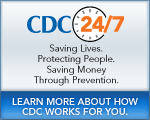Evaluating Influenza Vaccine Efficacy and Effectiveness Studies
Evaluating Influenza Vaccine Efficacy and Effectiveness Studies
Published for the 2010-11 Influenza Season; Adapted for the 2011-12 Influenza Season
The efficacy (i.e., prevention of illness among vaccinated persons in controlled trials) and effectiveness (i.e., prevention of illness in vaccinated populations) of influenza vaccines depend in part on the age and immunocompetence of the vaccine recipient, the degree of similarity between the viruses in the vaccine and those in circulation (see Effectiveness of Influenza Vaccination When Circulating Influenza Virus Strains Differ from Vaccine Strains), and the outcome being measured. Influenza vaccine efficacy and effectiveness studies have used multiple possible outcome measures, including the prevention of medically attended acute respiratory illness (MAARI), laboratory-confirmed influenza virus illness, influenza or pneumonia-associated hospitalizations or deaths, or seroconversion. Efficacy or effectiveness for more specific outcomes such as laboratory-confirmed influenza typically will be higher than for less specific outcomes such as MAARI because the causes of MAARI include infections with other pathogens that influenza vaccination would not be expected to prevent. Observational studies that compare less-specific outcomes among vaccinated populations to those among unvaccinated populations are subject to biases that are difficult to control for during analyses. For example, an observational study that determines that influenza vaccination reduces overall mortality might be biased if healthier persons in the study are more likely to be vaccinated. Randomized placebo-controlled trials that measure laboratory-confirmed influenza virus infections as the outcome are the most persuasive evidence of vaccine efficacy, but such trials cannot be conducted ethically among groups recommended to receive vaccine annually.
NOTE: For 2012-13 Influenza Prevention and Control Recommendations see “Prevention and Control of Influenza with Vaccines: Recommendations of the Advisory Committee on Immunization Practices (ACIP) – United States, 2012-13 Season,” MMWR 2012 Aug 17; 61(32):613-618.
For 2011-12 Influenza Prevention and Control Recommendations see “Prevention and Control of Influenza with Vaccines: Recommendations of the Advisory Committee on Immunization Practices (ACIP), 2011,” MMWR 2011 Aug 26; 60(33):1128-1132.
For 2010-11 Influenza Prevention and Control Recommendations see “Prevention and Control of Influenza with Vaccines: Recommendations of the Advisory Committee on Immunization Practices (ACIP), 2010,” MMWR 2010 Aug 6; 59(RR08):1-62.
Contact Us:
- Centers for Disease Control and Prevention
1600 Clifton Rd
Atlanta, GA 30333 - 800-CDC-INFO
(800-232-4636)
TTY: (888) 232-6348 - cdcinfo@cdc.gov



